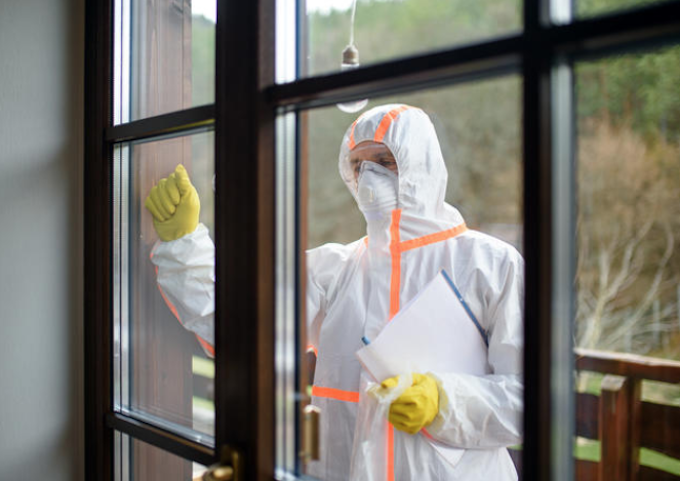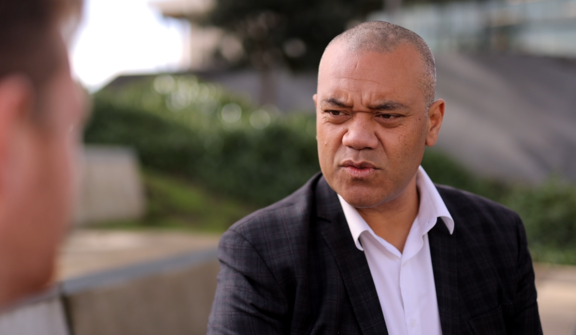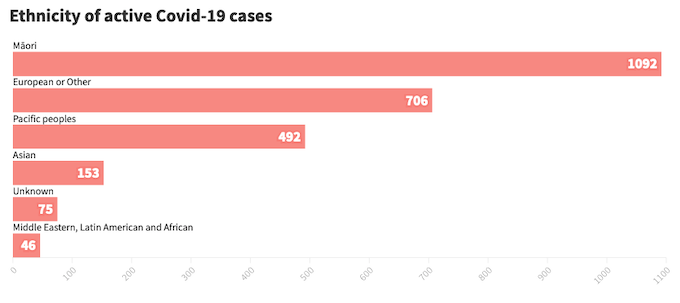
An Auckland councillor says he is astounded by the lack of cultural awareness shown by the authorities towards Māori and Pacific communities this far into the pandemic.
Manukau ward councillor Fa’anana Efeso Collins said covid-19 has become a Māori and Pacific outbreak, and South Auckland in particular is bearing the brunt.
He said calls over the past year for Māori and Pacific representatives to be at the decision-making table had been largely ignored.
- READ MORE: Auckland DHBs hit 90% first vaccinations
- Covid-19 update: 113 new community cases in New Zealand today
- Other NZ covid lockdown stories
Collins said those designing the response seem to have little knowledge of the communities, and it was showing.

“[We should have] people who are on the ground who understand our communities — right from the very beginning our request was that they be around the table that makes the decisions.
“And so these decisions are so far detached and disconnected from the realities on the ground.”

Fa’anana said the fact the government’s process for dealing with people in self-isolation was not practical was a glaring example.
Two patients died at home
This week two patients with covid-19 died while isolating at home.
On Friday a man in his fifties died in a Mount Eden apartment block after discharging himself from hospital on Wednesday.
And a 40-year-old man died while self-isolating in Manukau on Wednesday.
The cause of death has not been determined in either case, but the Health Ministry said the deaths were being considered as part of a wider systemic review it was carrying out with Auckland district health boards (DHBs).
Fa’anana said authorities were warned self-isolation would not work, and that for many families in South Auckland, it’s next to impossible.
“You know, the Ministry of Health says everyone gets sent an email. I think it’s time to get real — none of us read emails.
“And so I think that’s the level of lack of intelligence that perhaps we’re seeing from the Ministry of Health because they’re not on the ground, they don’t understand our communities.”
Battling the Health Ministry
“Fa’anana said health reforms cannot come soon enough.
Fa’anana’s criticisms come as Whānau Ora is battling the Health Ministry in court to try get access to personal data on unvaccinated Māori released to them.
The organisation wants to use the data for directing campaigns to increase vaccination rates among Māori.
The ministry has agreed to provide some of the data sought. It agreed to supply individual’s vaccination status for previous clients of Whānau Ora services, and anonymous vaccination status data to street level, to show unvaccinated areas in communities.
While the ministry has so far refused to hand over the full personalised data, after a High Court ruling this week it agreed to work with Whānau Ora to identify places where “outreach to Māori is most needed”, and to identify what data sharing was needed in those cases.
South Auckland health workers going door-to-door
Manurewa-Papakura ward councillor Daniel Newman said the ministry’s vaccination campaign had fallen short and left too many people vulnerable to the virus.
He said the government’s failure to set vaccine targets for Māori was already having consequences, and that is showing in hospitalisation statistics.
In his ward, frontline healthcare workers have resorted to door-to-door visits in an effort to reach vulnerable and vaccine-hesitant residents.
However, that could potentially expose them to people who are infectious with the virus and are isolating at home, he said.
He called on the government to protect healthworkers by letting them know where people are isolating at home with covid-19.
“It’s really important that we stay safe, because not only do we need to protect our own health, but we can’t become conduits for covid-19 ourself.
“The important thing for us is that we have enough scale that we have the ability to get to enough people as soon as possible.”
He said the door-to-door approach was necessary: “We’re in a race against covid-19 which is seeding in those streets, we need to get people protected before they become unwell.”
This article is republished under a community partnership agreement with RNZ.













































